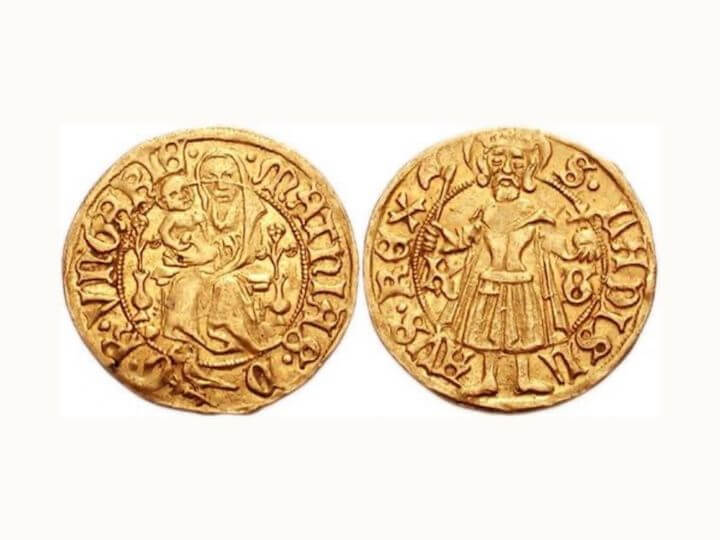
560 éve, 1463. július 19-én szerezte vissza Hunyadi Mátyás a Szent Koronát
1458. január 24-én Budán királlyá választották Hunyadi János volt kormányzó kisebb fiát, Mátyást. A cseh fogságból hazatérő ifjút 1458. február 14-én a budai Nagyboldogasszony-templomban a koronázási szertartás elemeit magán viselő ünnepély közepette trónra ültették, ez azonban nem jelentette azt, hogy teljes jogú uralkodóvá vált, hiszen a magyar szokásjog szerint csak az lehetett az ország törvényes királya, akinek fejére Székesfehérváron az esztergomi érsek helyezi fel a Szent Koronát. Mátyásnak azonban nem volt birtokában a klenódium, azt csak meglehetősen hosszú idő után, öt év elteltével sikerült visszaszereznie.
A doni hídfőcsaták kezdete (1942. július 18.)
Miután a „Blitzkrieg” kifulladt Moszkva alatt, a németek benyújtották revíziós támogatásukért a számlát, és az 1942. évi nyári offenzívához a teljes magyar haderő frontra küldését követelték, amelyet a magyar fél egy hadseregre alkudott le. Az 1942. június 28-án megindított támadás során jutott el a magyar királyi 2. honvéd hadsereg a Don partjára, ott kellett megvédenie a Magyar Haza határát.


A költő, aki hatott. Nagy László születésnapjára (1925. július 17.)
Nagy László Kossuth-díjas magyar költő, műfordító a már a XIII. században létező kis bakonyi falu, Felsőiszkáz szülötte. A természet közelsége, a kis falu élete, szokásai, mitikus világa, a célszerűen és gyakorlatiasan berendezett hétköznapok, az ünnepnapok rendje, a katolikus liturgia ismétlődése és a paraszti világ ciklikussága olyan szemléletet és rendet alakított ki benne, amely a költeményeiben is tükröződik.
Dózsa György emlékezete az iskolákban
Számos olyan történet maradt fenn a múltból, amely a források mennyisége, minősége miatt vagy egyéb okból kevésbé hihető. Ezért nem mindig a „mi történt”, hanem a „miképpen került a köztudatba”, „mit gondolunk róla” kérdése, vagyis a recepciótörténet a mérvadóbb megközelítés. Dózsa György esete jó példa erre.


1162. július 15-én koronázták meg II. László (ellen)királyt
A XII. század derekán sűrűsödtek a királyváltások Magyarországon. Nemcsak amiatt, hogy az akkori Árpád-házi uralkodóink fiatalon haltak meg, hanem azért is, mert egyiküknek még két ellenkirály trónfoglalásán is úrrá kellett lennie. III. István királyt (1162–1172) érte ez a megpróbáltatás: két nagybátyja lépett fel vele szemben ellenkirályként. Közülük az idősebb volt II. László, akit 1162. július 15-én koronázott meg – rendhagyó módon – a kalocsai érsek. Jóllehet II. László (1162–1163) a Bizánci Birodalom támogatásával került az ország trónjára, bizánci hűbért nem vállalt. Féléves királyság adatott neki, így nem tudhatjuk meg, hogy milyen uralkodói képességek lakoztak benne.
100 éve jelent meg Szentpétery Chronologiája
A diplomatika művelőinek nem kell bemutatni Szentpétery Imrét és munkásságát, és a tágabb közönség is méltó megemlékezést találhat a tudósról és pályájáról. Olyan munkájára hívjuk most fel a figyelmet, amely az oklevéltant hivatásszerűen művelőknek és a múlt iránt csupán érdeklődőknek is alapvető fontosságú.


„Uraim! A haza veszélyben van”
Az első népképviseleti országgyűlésen a horvát „pártütés” és a rác lázadás hírére, 1848. július 11-én a pesti Képviselőházban Kossuth Lajos pénzügyminiszter rendkívül nagy ívű szónoklatot tartott. A magyar retorika egyik gyöngyszeme volt ez, amelyben „nagyszerű határozatra”, Magyarhon védelmére hívta fel képviselőtársait: 200 ezer újoncot és a kiállításukhoz szükséges 42 millió forint megadását kérte.
„Fene gyerek volt biz őkegyelme” 1290. július 10-én hunyt el IV. László király
Fene gyerek volt az a Kun László, / Magyarország egykori királya! / Kun Lászlónak azért híták őt, mert /A kunokkal volt cimboraságba’


Szondi György emlékezete
„Mint hulla a hulla! veszett a pogány, / Kő módra befolyván a hegy menedékét: / Ő álla halála vérmosta fokán, / Diadallal várta be végét.”
Szent László tiszteletétől volt hangos a császárváros
Miután 1526-ban I. Ferdinánd magyar király, a Magyar Királyság pedig a Habsburg Monarchia része lett, magyarok még nagyobb számban kerültek a bécsi egyetem hallgatói sorába.
